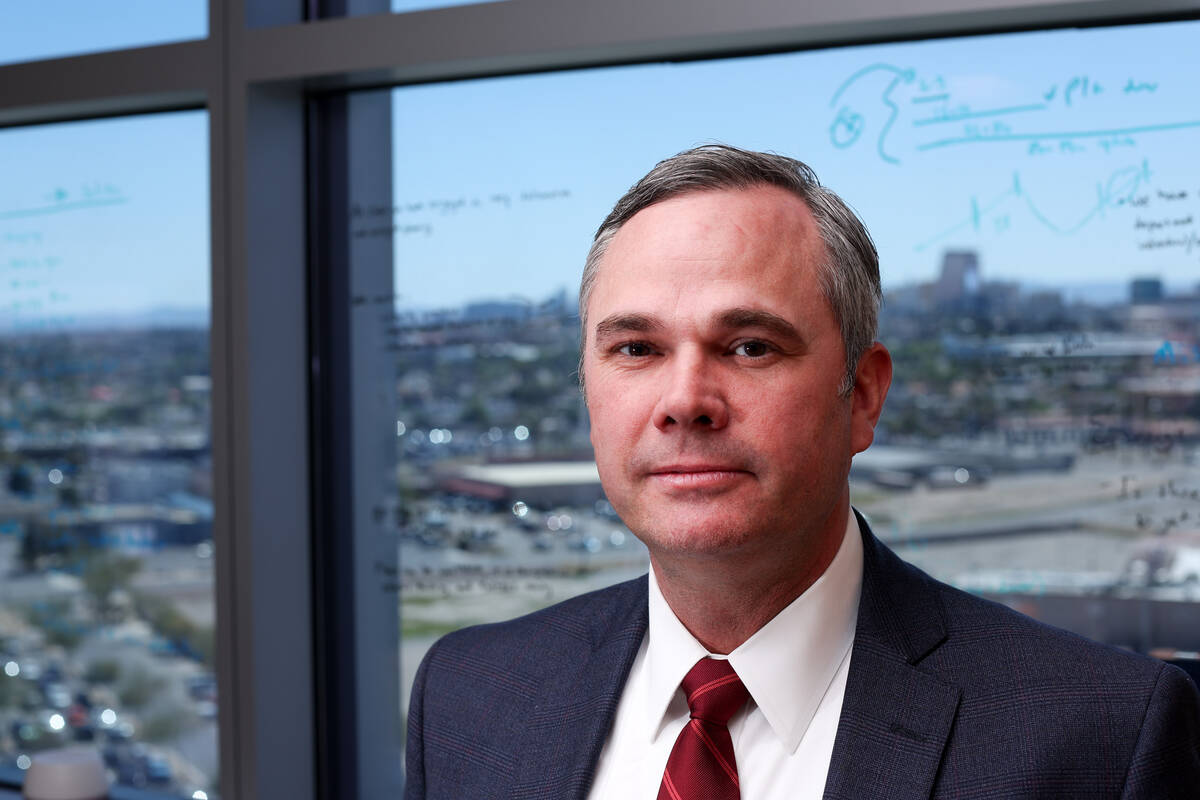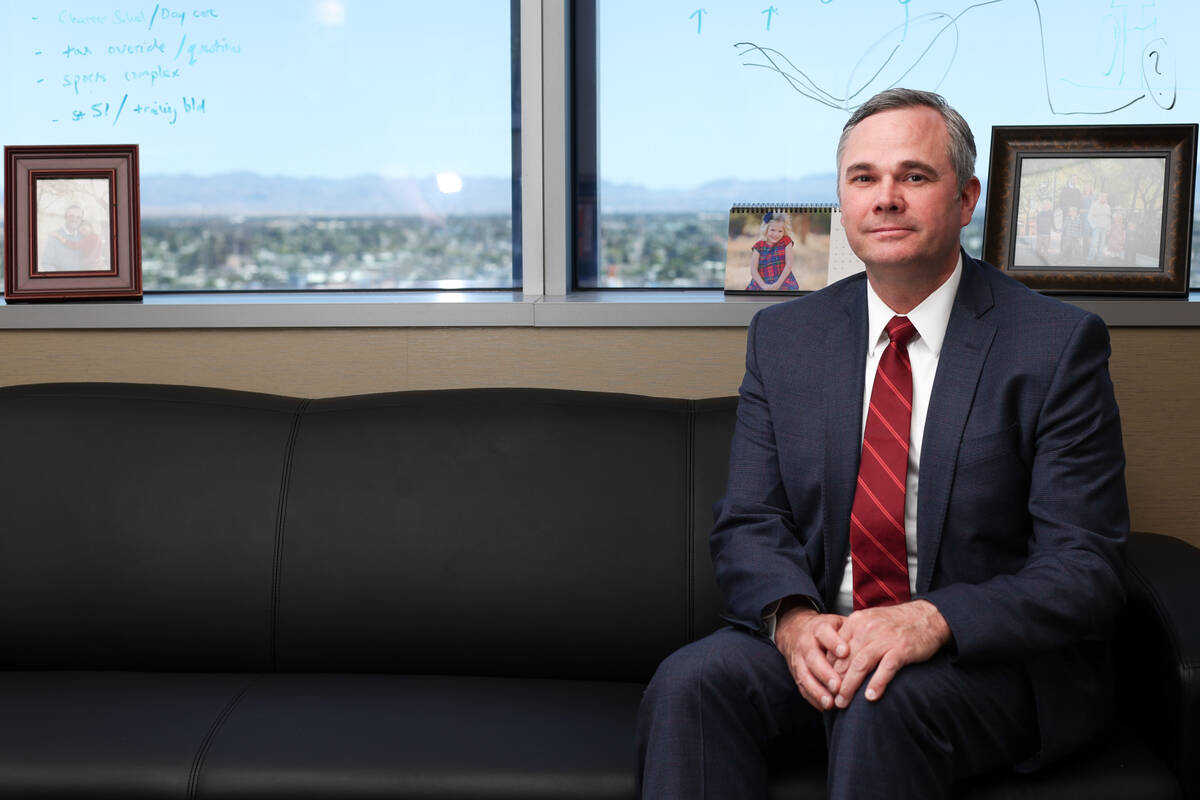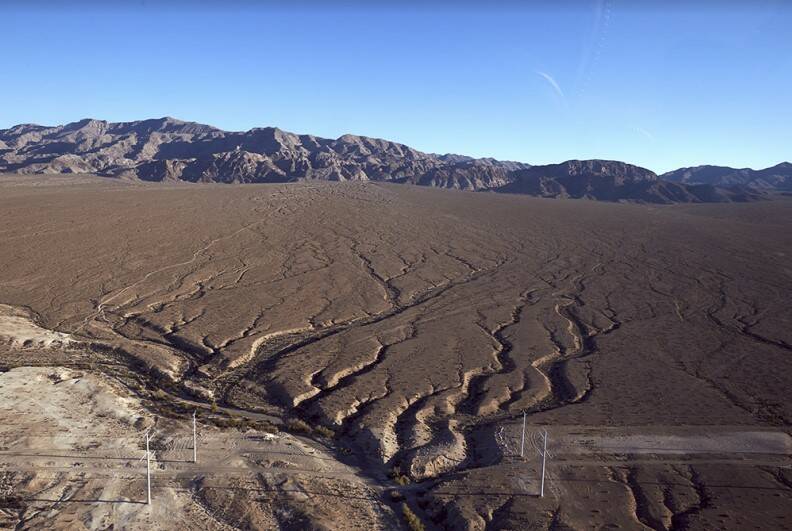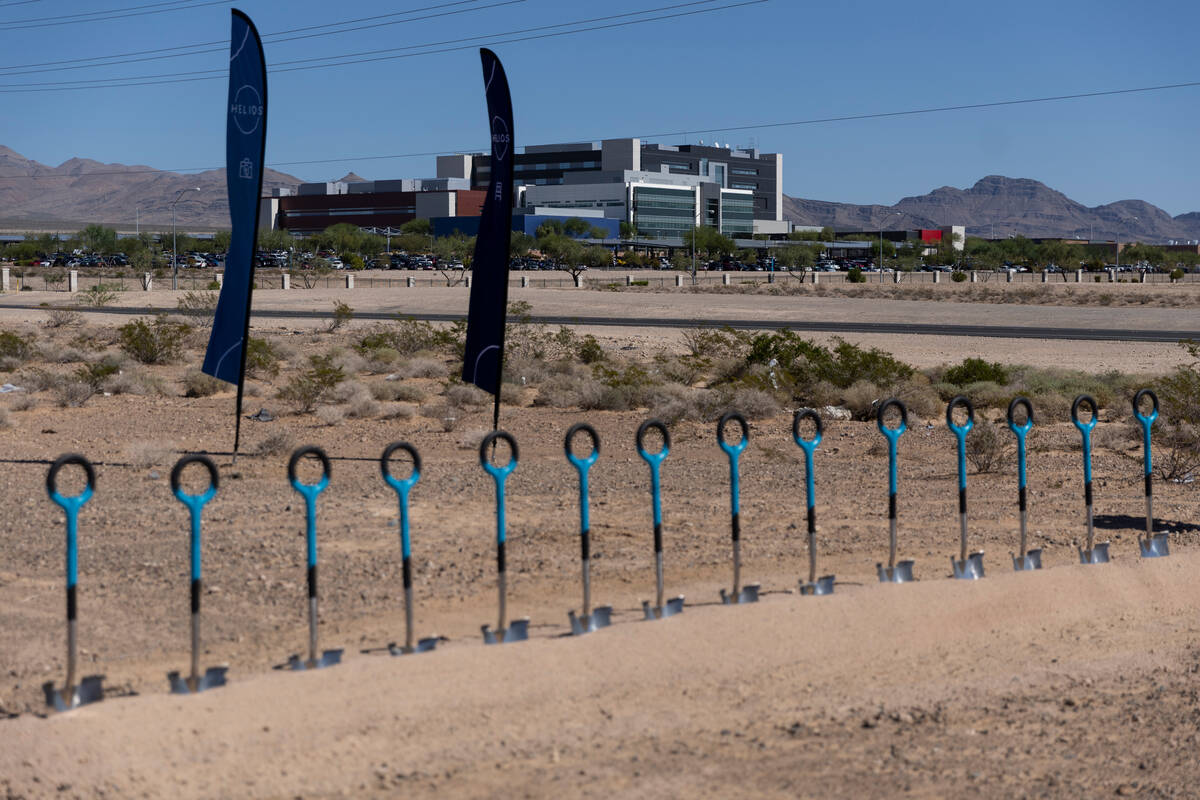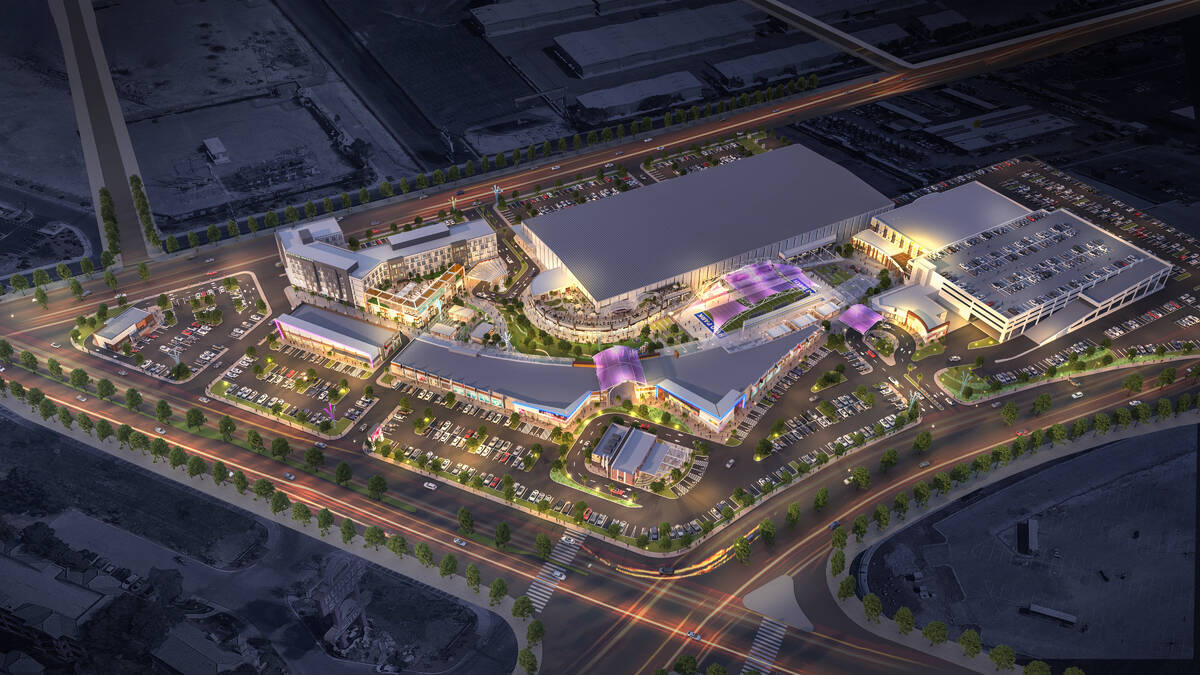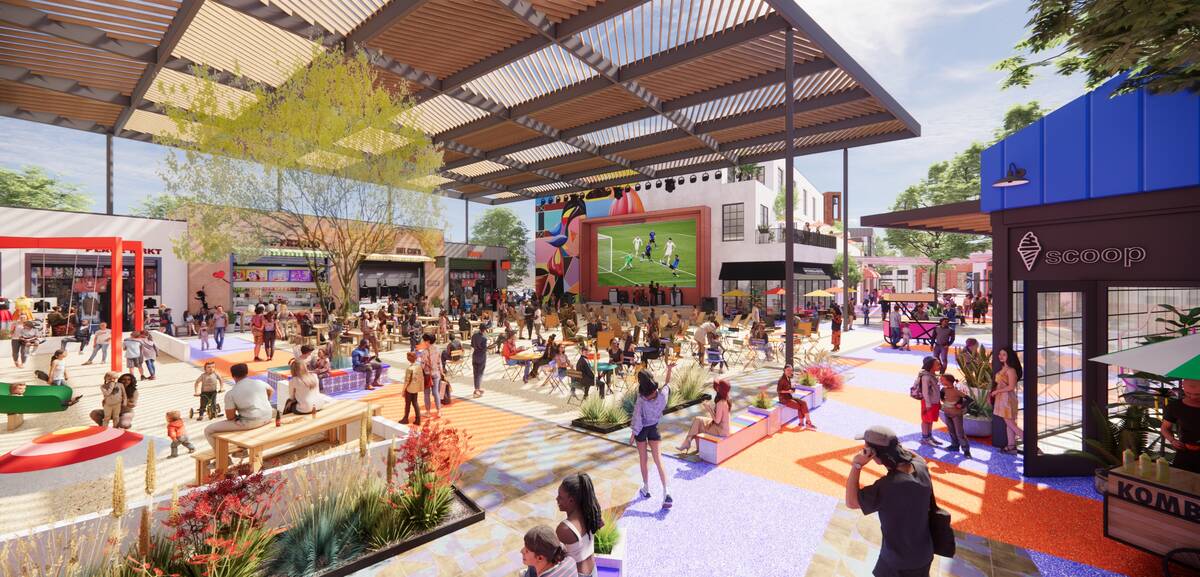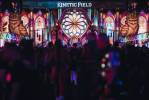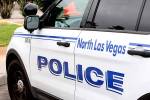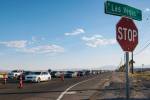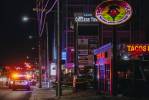How North Las Vegas went from near bankruptcy to fast-growing city
In 11 years North Las Vegas went from near bankruptcy to having a fast-growing economy with millions of square feet of industrial and retail space and big plans for more.
In one of his final interviews as North Las Vegas city manager, Ryann Juden, the key architect of the city’s resurgence, spoke about how the municipality turned the economy around and its plans for the coming years.
“We’re very much in the infancy space of growth as a community,” he said, noting there is a lot of land still to develop and many areas that can get redeveloped.
North Las Vegas has grown a lot since 2013. The city’s population has increased by 25 percent to over 282,000, the city’s annual budget has increased by about 138 percent to roughly $1.03 billion, and the number of active businesses has also grown by 34.5 percent to about 7,242, according to data provided by the city of North Las Vegas.
Juden left his post at the end of April after serving the city for nearly 11 years, first as the city’s chief of staff.
He said he sees North Las Vegas as having a bright future as the city looks to add a hospital and other medical space, more industrial space and mixed-use developments and grow its land holdings.
And the city has a major advantage, it has thousands of acres of vacant desert land for companies to build on.
North Las Vegas implemented grow-nomics
Juden said it was a “team effort” to turn around North Las Vegas, and the city focused on “grow-nomics” to get on a positive trajectory.
Juden explained that grow-nomics is about generating new revenue by luring new businesses and development by making the process faster instead of increasing taxes to stabilize the city’s operations.
“Instead of going back to existing businesses and taxpayers, what you do is you have a more welcoming environment to attract new businesses and taxpayers,” he said.
Andrew Woods, the director of UNLV’s Center for Business and Economic Research, said North Las Vegas’ growth strategy is paying off for the city.
“They certainly have turned the ship around since they are in a much stronger position,” Woods said. “You can drive out to North Las Vegas, and you’ll see lots of warehousing, lots of new businesses that didn’t exist five to 10 years ago.”
Industrial and retail space driving growth
One key driver of North Las Vegas’ growth is its industrial sector as the city has 68.3 million square feet of developed industrial land and 7.2 million square feet of retail, and the Apex Industrial Park also has another 24 million square feet of industrial space planned.
Juden credits the city’s available land and its business-friendly environment for the industrial growth and said Prologis has chose to place its 11 million-square-foot industrial facility in the city, in part, due to the speed which it could get approvals.
“You could take some of these projects and their monthly interest charged to a bank could be half a million dollars,” Juden said. “So every month you’re able to shave off their timeline, you could be shaving off half a million to a million dollars in interest that they would just lose that goes entirely to their profit.”
What could be improved
While industrial is one of North Las Vegas’ main strengths, there are still some areas where the city could improve, inlcuding improving access to health care, Juden said.
The planned development of a 135-acre medical campus called Helios fell through earlier this year and the city bought the site back from the developer for $52.95 million.
North Las Vegas still wants to place medical facilities on that land, but it’s likely the city won’t sell it next time but rather enter into a long-term ground lease, Juden said.
“That’s what makes sense to do there,” he said. “It allows the city to have control.”
The timeline for that process remains unclear.
North Las Vegas is also in the early stages, along with UNLV, of planning how to develop 5,000 acres of federal land that is set to be transferred to the entities. North Las Vegas has said it’s open to all options for development while UNLV wants to create a north campus with multiple uses.
Juden said the land presents a great opportunity to bring in more medical uses and more health-focused community developments in the area.
What is happening outside of industrial
Additionally, another way for North Las Vegas to get better communities is for some redevelopment to happen at existing sites, Juden said.
Two projects are looking to add mixed-use neighborhoods in North Las Vegas as the NLV Gateway Village project tries to revitalize downtown and the Hylo Park project tries to redevelop the site of the closed Texas Station and Fiesta Rancho casinos. Juden said both projects will complement what is already in the city and provide another boost to the tax base.
Woods said these projects could be the next step for the city’s progression.
“They’re now starting to kind of replicate what we’ve seen in other cities in the valley in terms of building more of these kinds of communities, areas where people can come to shop and eat and walk around,” he said. “That’s because they have more revenue, to support, you know, some of these redevelopment.”
Juden won’t be at the helm of North Las Vegas future development as he left the city to start a private equity and real estate firm, but said he will still consult part time for the city.
The former city attorney for North Las Vegas, Micaela Moore, is taking over Juden’s position, he said.
Contact Sean Hemmersmeier at shemmersmeier@reviewjournal.com. Follow @seanhemmers34 on X.



